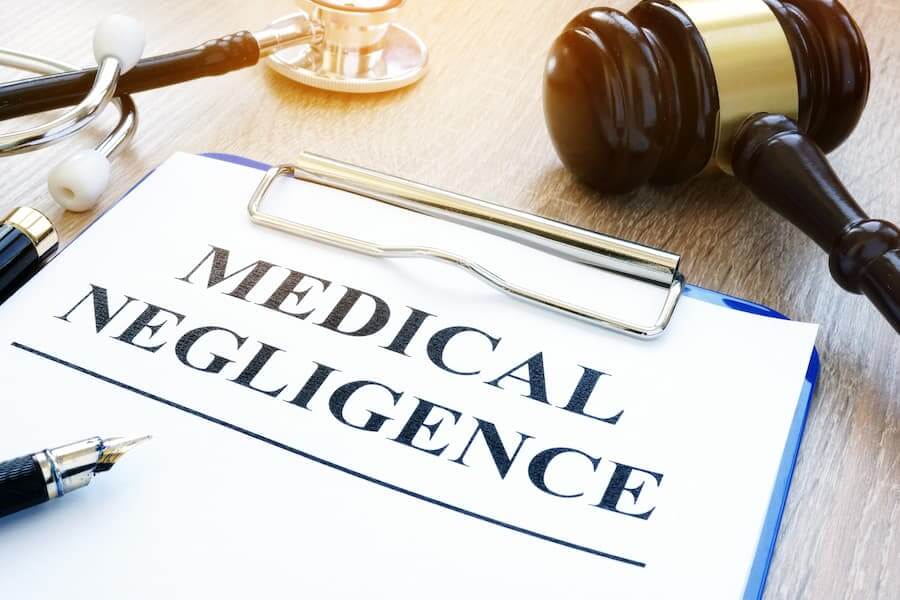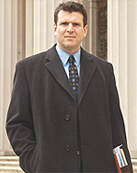How do you prove medical negligence? Doctors and others in the medical field cannot guarantee a successful outcome for every patient, but they can and should provide each patient with reasonable and competent care. When they do not, you can hold them liable through a medical malpractice lawsuit.
Using evidence and testimony of specific witnesses, a medical malpractice attorney can show that an adverse or harmful medical outcome resulted from a medical provider’s negligent behavior.
Negligence Explained by a Medical Negligence Attorney
Doctors and surgeons should possess detailed medical understanding. It takes someone anywhere from ten to 14 years to complete all the schooling and training necessary to become a licensed medical care provider. For this reason, people routinely trust doctors to provide safe and effective healthcare services.
But even the most talented and skillful doctor is human and capable of making mistakes, and severe injuries to you or your loved one can follow.
A Johns Hopkins University study found medical errors the third leading cause of death in the United States, claiming an estimated 150,000 lives annually.
Negligence means carelessness. It is not the same as reckless behavior, as recklessness connotes an awareness that a risk exists and a decision to ignore it. Nor is negligence the same as intentional and purposeful conduct.
Careless (or negligent) conduct, in contrast to reckless or intentional conduct, implies behavior or decisions made without due regard for their potential consequences.
Generally speaking, you are considered negligent in any given situation if your actions and choices are such that any other reasonable person in the same situation would not have acted the way you did.
A doctor, surgeon, or other professional is negligent if no other reasonably careful professional would have rendered the advice or care that the doctor at issue did.
Negligence is fact-specific; what is considered negligent care under one set of circumstances may not be considered negligent under different circumstances. Some of the circumstances that are considered by medical negligence lawyers when arguing that a doctor was or was not negligent include the following:
The Professional’s Education and Experience
Not all medical schools and residency programs are created equally. Some doctors and surgeons are able to attend programs that are more instructive than others. A doctor will not be measured against an educational standard that they did not or could not have experienced themselves.
Similarly, the decisions a doctor makes should become more informed and reasoned the longer the doctor is in practice. A doctor with thirty years of experience will likely view a patient’s situation differently than one who just passed their boards a week ago.
The doctor or medical professional with little experience will not be held to a standard of care that accounts for decades of practical experience. In the same way, a seasoned doctor or nurse will not be able to escape the benefit of their years of experience in a medical malpractice case by comparing their actions to an inexperienced professional.
The Location Where the Alleged Negligence Occurred
Even within New York, you might receive a wide variation in care. The medical facilities and technology available in New York City are not likely available in Ellisburg, New York.
Your medical team in New York City might include several specialists who can quickly review your situation and lend their expertise. However, in a small town like Ellisburg, your doctor may not have easy access to other medical professionals to consult on your case.
Medical malpractice attorneys attempting to prove negligent care consider this. To meet the definition of negligence, your healthcare professional must have provided care that no reasonable provider with similar experience in that same geographical area would have provided you.
Other Factors Relevant to Negligence Inquiry
In addition to your doctor’s education and experience and the location of the medical error, some other facts and circumstances will likely be considered in determining negligence.
These other relevant factors may include:
- The facility at which the malpractice occurred
- The tools with which the physician or other professional was most comfortable
- The human and other resources available for the professional to use
- Any protocols or recommended practices that were applicable in the situation
- Your history and the doctor’s familiarity with your conditions before the alleged malpractice
By contrast, your doctor’s age, sex, religion, or national origin will not be relevant. No medical negligence lawyer will attempt to show that your doctor acted carelessly by pointing to personal characteristics or factors that are irrelevant to the care provided.
No Negligence Where Reasonable Minds Could Differ
Negligence in a medical malpractice case cannot exist if a reasonable, similarly situated medical professional could have agreed with your doctor’s course of action. If reasonable minds in the relevant medical community could disagree over the propriety of your doctor’s course of action, your medical malpractice suit will be difficult to prove.
How Medical Negligence Attorneys Prove Negligence
Medical malpractice cases will frequently require your medical malpractice attorney to obtain and review considerable evidence and depose numerous witnesses to support your claim. The evidence your attorney will use to prove negligence could consist of documents, reports, and other tangible items and may include:

Your Doctor’s Curriculum Vitae
A curriculum vitae (often abbreviated as CV) lists your doctor’s professional credentials, including where they went to school, where they completed their residency, and where they worked. It will also list any courses taught by your doctor, any training they received, and any specialized knowledge they might possess.
The information in your doctor’s CV will need to be verified, but it can provide a clear picture of your doctor’s professional career and credentials. It can also help your medical negligence lawyer identify witnesses who could speak to your doctor’s character and professional reputation.
Your Medical History and Course of Treatment
The conditions for which you were receiving treatment are immensely relevant to a claim for negligence, and so your medical records will contain valuable information that can support your claim.
That information could include:
- Your diagnoses and how long and consistent those diagnoses have been
- Treatments you received and were undergoing at the time of the malpractice
- The amount of time your doctor has been treating you
- Prescription medications your doctor directed you to take
The picture painted by your records can tell a judge or jury whether your doctor was treating you for a well-known condition like diabetes or for a novel virus, injury, or sickness.
Procedures identified in your record will also assist your medical negligence attorney in looking into the appropriateness of the course of treatment decided upon by your doctor.
The more novel or rare your condition is, the more unconventional your course of treatment might be before it becomes negligent. Conversely, new, experimental courses of treatment for conditions with well-established treatment protocols can lead to a finding of negligence more easily.
Protocols and Literature
Any treatment protocols or literature that your doctor has seen or of which they should have been aware will also play a role in your medical malpractice suit. Authoritative instructions that could have influenced your doctor’s actions and decisions will be informative for the judge or jury hearing your case.
Doctors are bound to follow certain protocols. If your doctor adhered to those rules, it may be more challenging to show your doctor acted negligently and in a way that other reasonable professionals would not have.
On the other hand, your doctor’s disregard of well-respected literature and treatment protocols in favor of more experimental or fringe ones will be viewed with more skepticism.
Your attorney will also want to examine the testimony of the following witnesses, which can support your claim of negligence and make it more likely your claim will succeed:
Your Doctor’s Peers and Colleagues
Knowing your doctor’s reputation within the medical community can be helpful, especially if that professional reputation is questionable. Coworkers and others in the medical profession who are familiar with your doctor’s practice can provide valuable insight into whether your injury was part of a larger pattern of careless behavior.
You may think that doctors and others in the medical profession would not be interested in disclosing troubling behavior or practices in which a colleague engages. However, when someone in the medical profession engages in unsafe practices, it threatens the safety of patients and can lead to additional consequences for all community members.
In other words, doctors, nurses, and others working in the healthcare industry have an interest in reporting others who provide substandard care.
Medical Experts
When you are hurt because your doctor or nurse has allegedly provided substandard care, you will almost invariably need at least one witness who can testify as an expert. This expert witness will review your medical history, the treatment provided by your doctor, and any other relevant facts about how your doctor provided care.
The expert will then provide their opinion on whether the course of treatment you received or how you were cared for was careless.
Choosing the right medical expert for your case is not as easy as it might seem.
Persuasive experts:
- Examined you personally and reviewed your medical history
- Are practicing physicians themselves and not simply academics or theorists
- Can explain complicated concepts easily on the stand
- Know current research and can defend their positions with evidence
You will compensate your expert for their services, and that compensation will be made known to the defendant and the judge or jury. Experts who charge exorbitantly high fees to testify can be seen as “hired guns” who are not credible.
Finding an expert who is both knowledgeable and credible, then, can take some time and effort. Your medical malpractice attorney is likely connected to a network of medical experts who may be able to help in your case.
Putting Your Medical Negligence Case Together
All of these pieces of evidence and testimony, as well as other relevant items and people identified by your medical negligence attorney, will be used together to paint a picture. Your attorney must generally do this within 30 months of the malpractice.
To succeed in your case, you need a medical malpractice lawyer who can show:
- Your doctor, nurse, or other healthcare provider provided you with care
- The care you received was subpar in light of medical community standards
- The healthcare professional made one or more unreasonable errors
- These errors led to an injury or outcome that need not have happened
- The injury or outcome is tangible and can be legally compensated
When presenting your case, you and your medical malpractice attorney must anticipate and respond to any evidence or defense the defendant-professional may offer.
The defense may consist of experts testifying on behalf of the defendant, claiming that the care they provided was acceptable and in accordance with standards. The defendant may also claim that factors or circumstances outside their control led to your injuries.
Seek Knowledgeable Legal Help With Your Case

Successfully proving a complicated medical negligence claim exceeds the skill of most ordinary patients. Therefore, if you believe a healthcare professional like a doctor, nurse, specialist, or surgeon hurt you, seek an attorney’s advice as soon as possible.
A New York medical malpractice lawyer can meet the tight deadlines in these cases. Your attorney can also identify, evaluate, and gather the evidence your case needs to succeed. Reach out to a personal injury lawyer.



